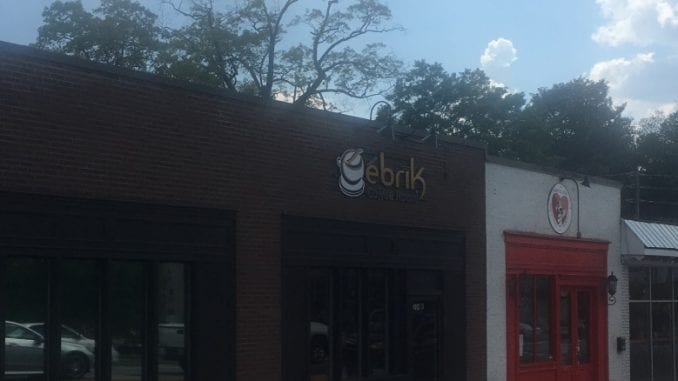
The owners of Ebrik Coffee Room in Atlanta have created a community that offers the best of specialty coffee and is known for offering various brew methods. One of the owners, Abbas Arman, takes a moment to talk about the cafe and building a community.
BY L.L. PRUITT
SPECIAL TO BARISTA MAGAZINE
Ebrik Coffee Room is a specialty coffee shop that brings communities together. Owners Abbas Arman and Basel Nassri are the heart of their communities, making Ebrik a place where people connect and become friends. As a connector, Abbas gets to know his regulars in a way that allows them to develop relationships outside of Ebrik. During this interview Abbas told me about Sanjay Patel, a regular who had experienced such a connection at Ebrik. Minutes later, Sanjay came into the shop and told the story of how he was drawn to the shop: “I was looking for a non-branded coffee shop to conduct my meetings. It was more than a coffee shop, it was a community.”
Ebrik’s regulars are invested in the shop, and it shows. At the downtown location there is a magnet that reads: “Syrians are welcome here.” This magnet was added during the attempted ban on Muslims coming into the United States. Basel is of Syrian descent and Abbas is Palestinian; however they were not responsible for the addition of the magnet. An Irish professor from the nearby college made it and placed it in the shop. The magnet harkens a deeper message that “everyone is welcome here,” as Abbas puts it, and the community is invested in creating a welcoming environment for everyone. This is the community that Ebrik has helped to build.
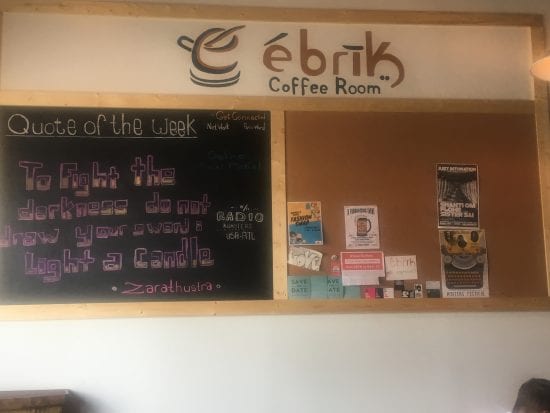
On any given day you will find Abbas and Basel working behind the bar. They believe in educating their customers and celebrating different cultures. There are two Ebrik locations: the downtown Atlanta shop opened three years ago, while the second location opened in March of this year in nearby Decatur. We asked Abbas a few questions about his journey to coffee and how he envisions Ebrik contributing to the larger coffee community.
LP: What is your first memory of coffee?
AA: At weddings and funerals, the Turkish coffee prepared like espresso shots, without a filter. I just always remember that coffee was a time when people would come together. It was family, and had a ceremony feel to it. It was always serious, either seriously happy or seriously sad. So coffee was always part of our lives, and so was business. We were always helping our parents out with the different businesses they would start. My dad was always part of start-ups and different businesses.
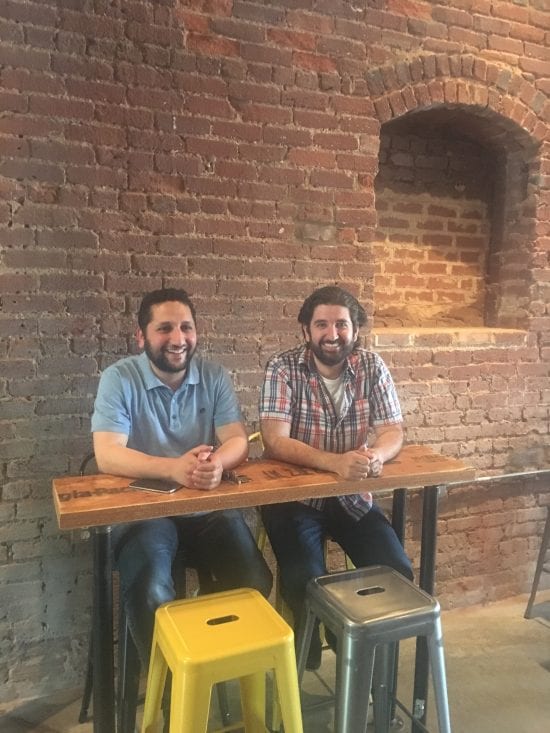
LP: How did the idea of a coffee shop come about?
AA: I’ve always hung out at different coffee shops and I’ve always liked the idea of coffee shops. I had a good friend who pitched it to me and thought it would be a great idea. He partnered me up with Basel and it was a wrap.
LP: What coffees do you currently use?
AA: With the downtown location we started out with Atlanta Coffee Roasters—they air-roast their coffee. We also used Land of 1000 Hills. We always try to have a featured coffee, and all of our coffees are single origin. At the Decatur location we use Radio Roasters.
LP: Tell me about your coffee ethos.
AA: Our motto is, “Community, Culture, Comfort.” Our philosophy is derived from those three words. The culture part is celebrating the different methods of coffee. Someone was telling me the other day about coffee and the different demographics of people that drink coffee, and I’ve been around it and I know exactly what he was trying to say. And I said, listen, you know coffee isn’t picked or grown by hipsters. So when we make coffee, we are celebrating these people [at origin], that diversity, that culture. We come from different places, too—that’s part of it. Coffee comes from all these different communities, so we’re celebrating coffee.
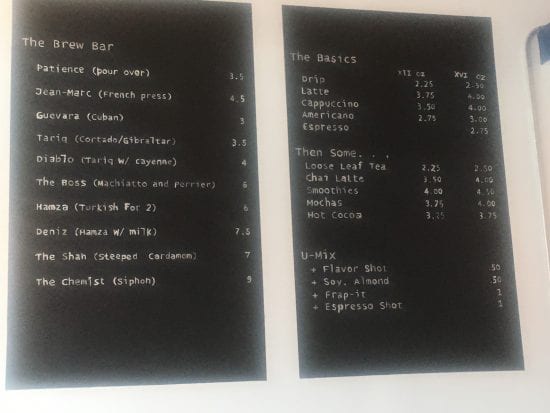
[Culture comes] through our music as well—you never know what music you will get, from Jimi Hendrix to Fela Kuti. And the comfort comes from the feel of the shop, the colors in the shop. We have the industrial feel, but we also have couches. We feel like people want to be comfortable as well. For those who like the industrial look, they have a space, and for those who want to feel comfortable, we have the couches.
LP: Do you have a favorite drink?
AA: It depends. I think to bring out the flavors of a coffee, the best method is a pourover. If I’m going to have an espresso-based drink, I like a cortado. I don’t like too much milk. I still want to taste the espresso. Obviously I love Turkish coffee as well.
LP: Were there things you saw in other coffee shops that you wanted to do or wanted to stay away from?
AA: I didn’t want us to be considered a Middle Eastern coffee shop, because that’s not what we are. We provide different methods of brewing coffee, like siphons. Some people really like it and it’s something that’s nice. It’s another method of making coffee, it’s interesting, and people like to watch it, so we do that.
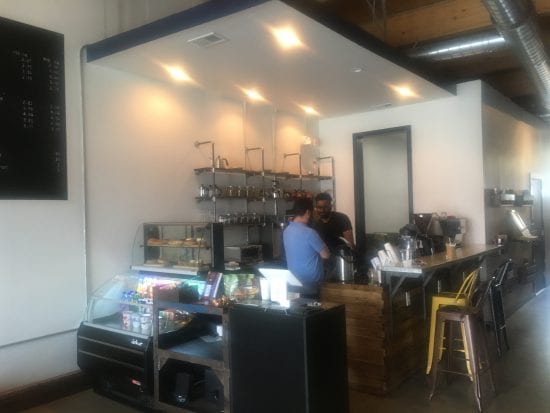
Honestly, you will never hear me talk negatively about independent coffee shops, because I’ve learned a lot from all the coffee shops in Atlanta. I think Atlanta has great coffee. I do like the seriousness of coffee in different places. What I wanted to take from other shops like Octane was the seriousness about the trade. They have a single origin, they have a featured roast of the day, and they are able to articulate that and offer the best drink for each customer. What I don’t like obviously are that some [shops] are still snobby and pretentious. I don’t think it’s good business. I have seen people go from super caramel frappes with the whipped cream to appreciating a macchiato. They can tell when we change the beans for the espresso. You have to allow people to grow and not write them off. I push this hard, the love for our customers—it’s real.
 ABOUT THE AUTHOR
ABOUT THE AUTHOR
L.L. Pruitt is a freelance writer and barista sharing and expanding coffee in Atlanta, which you can see through her Instagram @coffeeatlanta.

